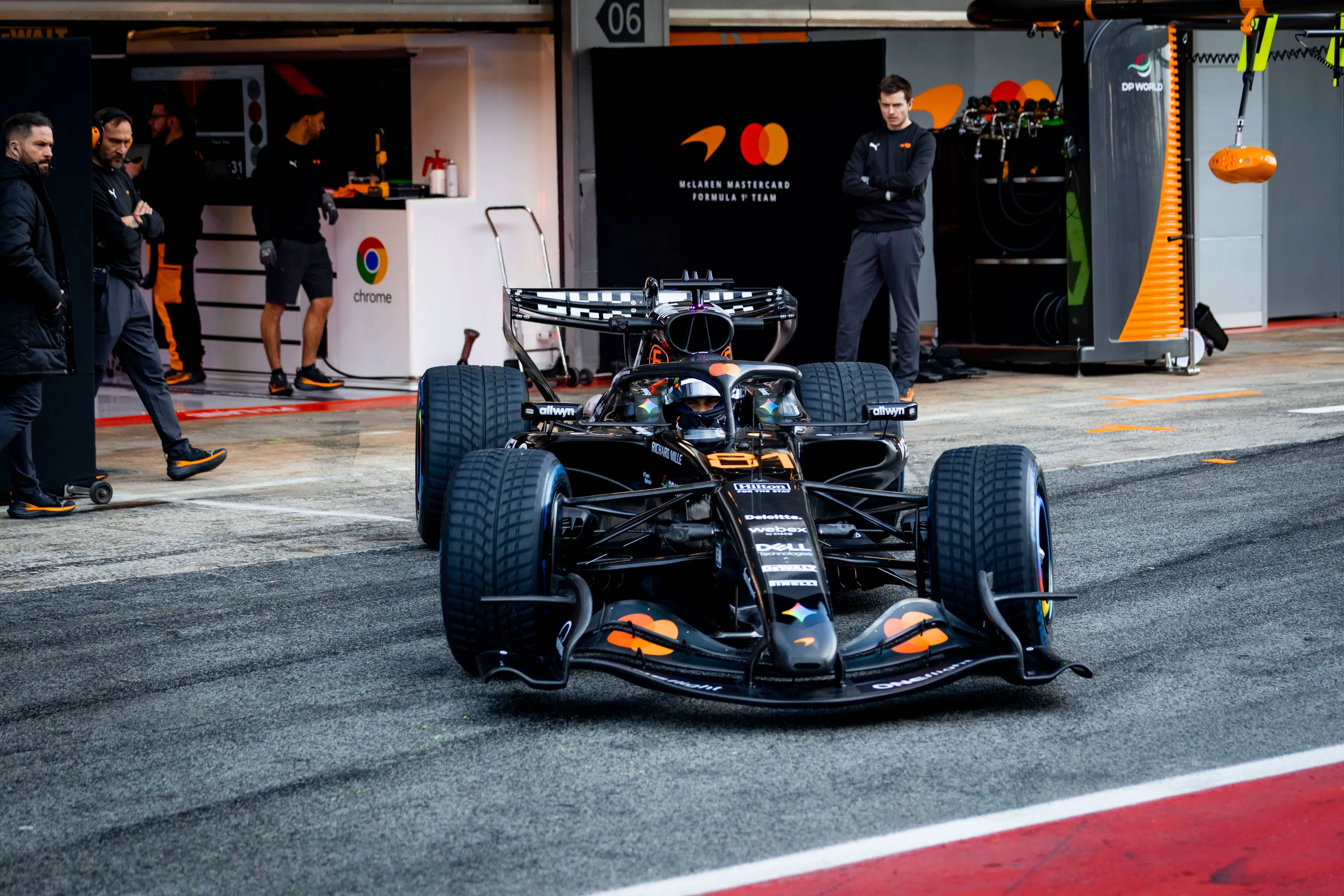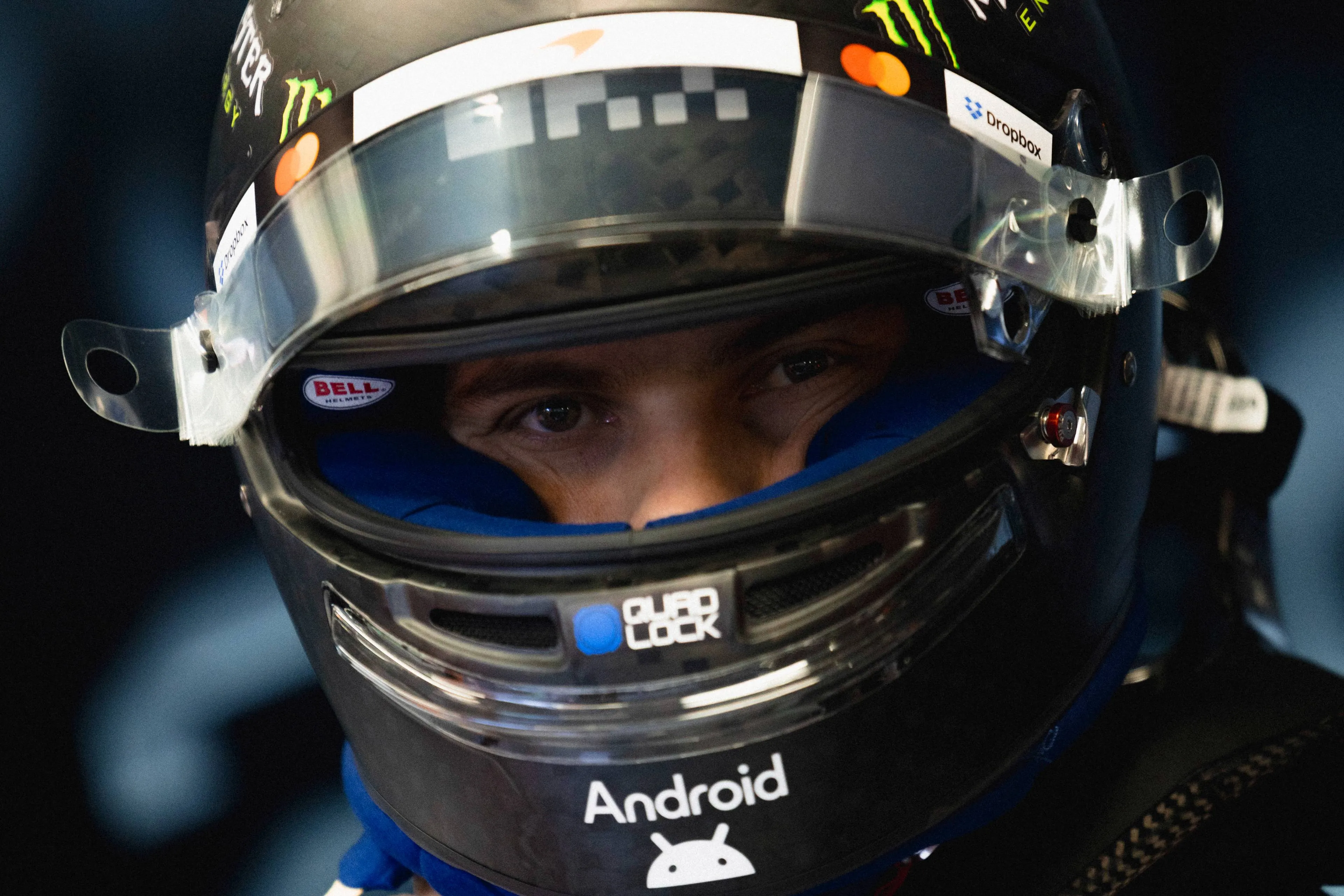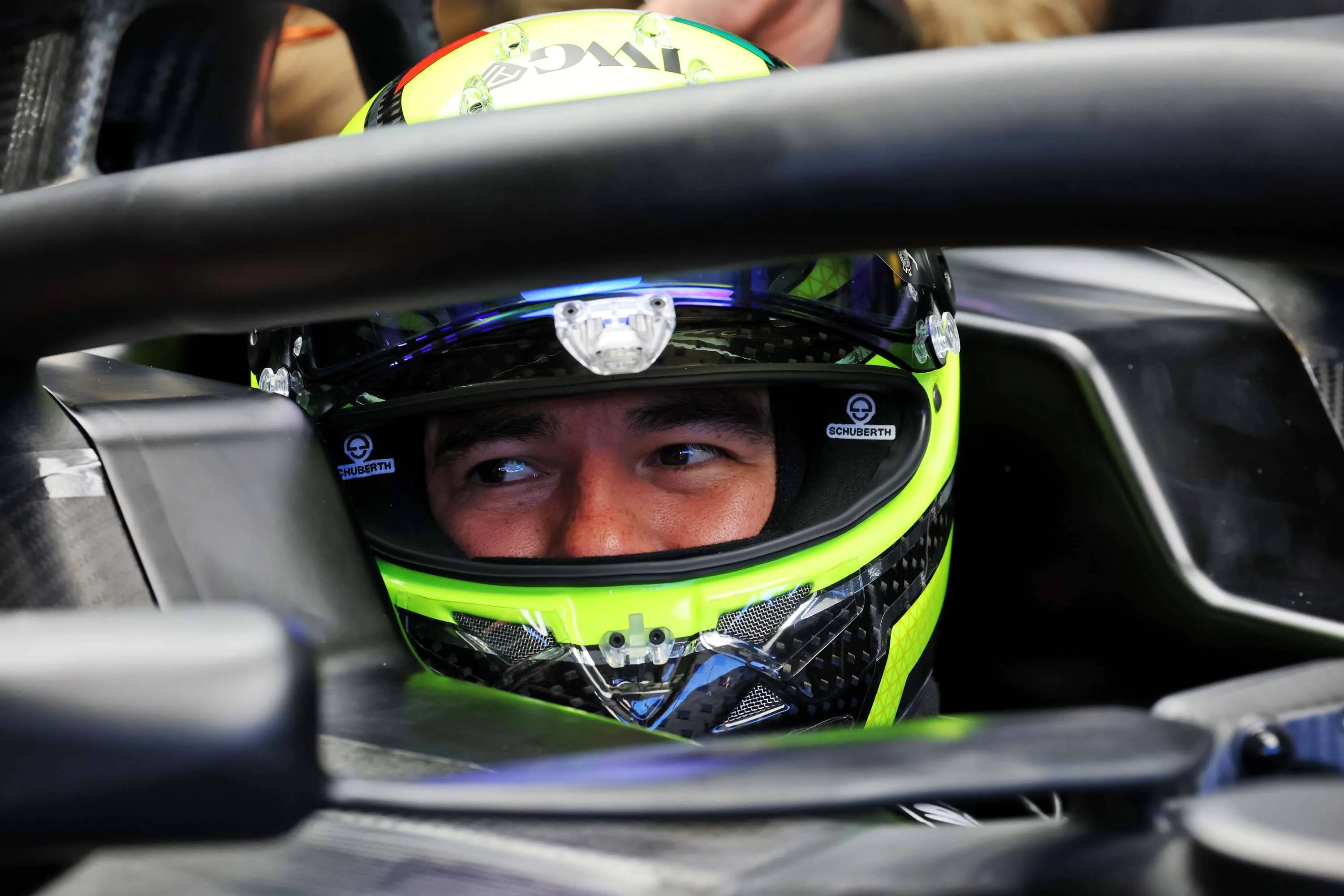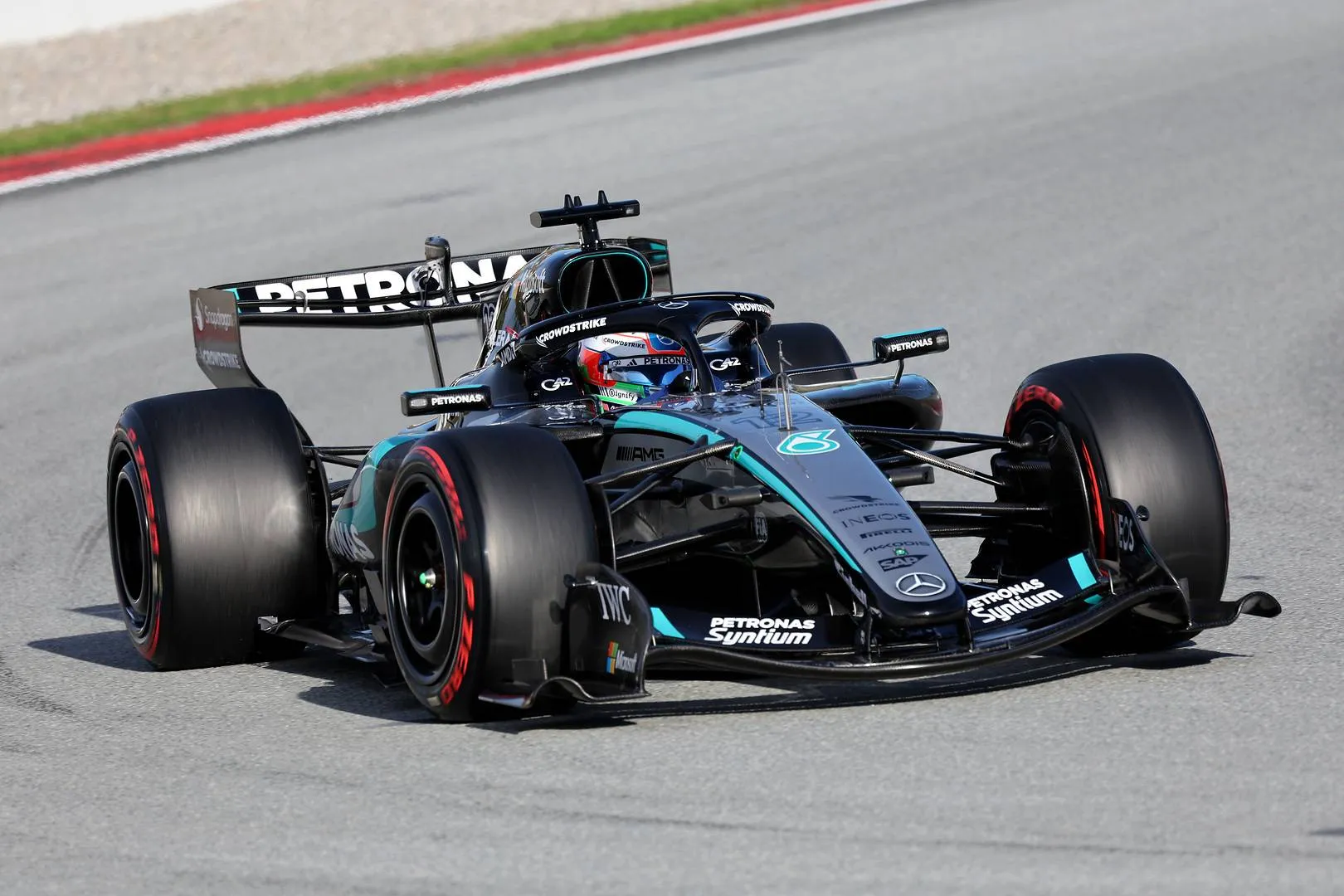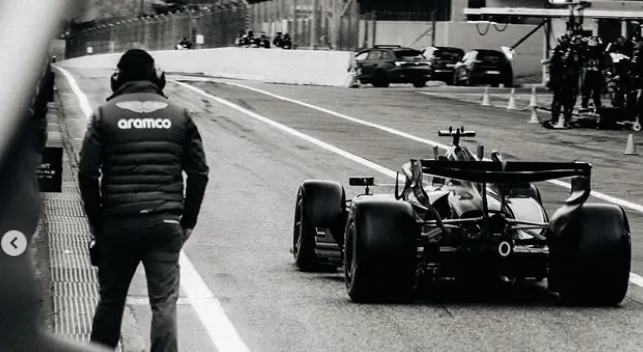F1
Formula 1 (F1) is the highest class of motorsport and is known as the "king" of single-seater racing. The competition originated in 1950, and since 1981, it has been officially recognized as the FIA Formula 1 World Championship. Currently, Max Verstappen is the reigning world champion among drivers, while McLaren holds the title for constructors.
F1 Regulations 2025
In 2025, the technical regulations will largely remain unchanged. Engine development is frozen, and the cars will continue to adhere to the rules that were established under the guidance of Ross Brawn. The end of 2024 showed that the teams are closer than ever before. McLaren starts as a title favorite, but Red Bull, Ferrari, and Mercedes will be right behind them.
After the dominant performances of Max Verstappen and Red Bull Racing in the 2023 season, 2024 took a completely different turn. The Austrian team faced several challenges and had to contend not only with McLaren but also with Ferrari for the Constructors' Championship.
F1 Calendar 2025
In 2025, just like the previous year, a record number of 24 races will be held on the F1 calendar. The F1 season will begin with the annual winter test in Bahrain. From February 26 to 28, the teams will test before the season officially starts. This year, the season will kick off in Melbourne with the Australian Grand Prix, marking the first time in years that the season does not start in Bahrain. The Dutch Grand Prix will also be back on the calendar in 2025. The race at Circuit Zandvoort will be the first after the summer break. The weekend at Zandvoort will start with the first free practice on Friday, August 29, 2025, and the race itself will be on Sunday, August 31, 2025.
F1 Points System 2025
The calendar for the Formula 1 Championship has expanded over the years and will continue to grow under Liberty Media's leadership. Since 2014, F1 has used V6 hybrid engines, and the tires are supplied by Pirelli. The championship consists of ten teams and twenty drivers. The points system has also been adjusted over time. Initially, points were only awarded to the top six drivers, but now the top ten drivers earn points (25, 18, 15, 12, 10, 8, 6, 4, 2, 1), with an additional point for the driver who sets the fastest lap, provided they finish in the top ten. In 2024, a proposal was discussed to allow drivers in positions eleven and twelve to score points.
F1 Sprint Races in 2025
Of the 24 races on the F1 calendar, there will again be six Sprint Races in 2025. These will be held in China, Miami, Belgium, the United States (Austin), Brazil, and Qatar.
F1 Schedule 2025
The time schedules for all Grand Prix weekends will be available on the 2025 F1 Calendar. Each race will have its own date and time listed, including all qualifying sessions, free practices, sprint shootouts, and sprint races.
F1 in 2025
Lando Norris stormed to victory at Silverstone to win his home race for the first time in his career. The McLaren driver kept his car on the track and made very few errors over the 52 laps to finish ahead of teammate Piastri. Sauber were also celebrating as Nico Hulkenberg took his first F1 podium, defending from a hard-charging Lewis Hamilton in the closing stages at Silverstone.
Round 13 of the 2025 Formula 1 season saw tricky conditions at Spa-Francorchamps. Following a long and much-debated delay caused by heavy rainfall, Oscar Piastri claimed the lead at the rolling start with a daring pass on Lando Norris. Charles Leclerc kept Max Verstappen at bay to secure the final podium position, while Lewis Hamilton’s high-downforce setup proved no match for Alexander Albon’s low-drag Williams. Ferrari introduced a revised rear suspension, and McLaren once again delivered a commanding 1-2 finish.
History of F1
After World War II, motorsport transformed into the organized championship that we now know as Formula 1, where races are held under specific regulations. This transformation culminated in 1950 with the establishment of the first world championship, where Giuseppe Farina (Italy) won the inaugural title for Alfa Romeo, narrowly beating his teammate Juan Manuel Fangio. Fangio, who later drove for teams like Ferrari, Maserati, and Mercedes, dominated the 1950s with five world titles, setting a standard that wasn’t surpassed until decades later by Michael Schumacher.
From the late 1950s to the year 2000, British teams dominated Formula 1. It all started when Jack Brabham (Australia) won the world title for the British team Cooper in 1959. Teams like BRM, Lotus, McLaren, and Williams continued this dominance, with British drivers such as Jackie Stewart, Graham Hill, Jim Clark, and James Hunt regularly collecting world titles. This trend continued until Michael Schumacher broke the dominance of British teams with Ferrari.
F1 Ownership - From Bernie Ecclestone to Liberty Media
Under Bernie Ecclestone, who took over in 1978, Formula 1 underwent a financial transformation. He introduced higher costs for circuits and strict negotiations, turning the sport into a multi-billion-dollar business. Williams and McLaren dominated the track, while rivalries like the one between Alain Prost and Ayrton Senna created significant drama. In 2016, Liberty Media, a US-based company, took over with Chase Carey and Ross Brawn at the helm. They introduced new rules and a budget cap to modernize the sport.
The Rivalry Between Senna and Prost
The rivalry between Alain Prost and Ayrton Senna became one of the most iconic in F1 history, reaching its peak with their controversial collisions in 1989 and 1990. After their time together at McLaren, the rivalry continued, with Prost winning his fourth title with Williams in 1993 and Senna tragically dying during the 1994 San Marino Grand Prix while driving for Williams. Their fierce battles forever changed the dynamics of Formula 1 and raised awareness about safety.
The Michael Schumacher Era
The rise of Michael Schumacher in 1994 marked the beginning of a new era. He broke record after record, first with Benetton and later with Ferrari, where he formed a successful partnership with Jean Todt and Ross Brawn. Between 2000 and 2004, Schumacher dominated with five consecutive titles at Ferrari, ultimately breaking Fangio’s record with seven world titles. His time at Ferrari set new standards for the sport until Fernando Alonso broke the dominance in 2005 and 2006 by winning titles with Renault. Schumacher’s retirement in 2006 marked the end of an era.
Lewis Hamilton’s Pursuit of Schumacher’s Record
After Schumacher, it wasn’t Alonso but Lewis Hamilton, his teammate in 2007, who would become the successor. The British driver won his first title with McLaren, then went on to win six titles with Mercedes. Hamilton even came very close to his eighth world title. In 2021, during the Abu Dhabi Grand Prix, Hamilton led the race but ultimately lost to Max Verstappen. The Dutchman overtook him on fresh tires to claim his first world title.
Verstappen vs. Hamilton in 2021
The 2021 Formula 1 season culminated in a dramatic battle between Max Verstappen and Lewis Hamilton at the Abu Dhabi Grand Prix, where both drivers arrived with equal points. Verstappen, consistently strong from the start of the season, and Hamilton, the former dominant force with Mercedes, fought not only on the track but also sparked tensions between team bosses Christian Horner (Red Bull Racing) and Toto Wolff (Mercedes). The race reached a climax when Verstappen crashed after a clash with Hamilton during the British Grand Prix, leaving Verstappen in the hospital while Hamilton went on to win despite a time penalty. In Abu Dhabi, Verstappen lost his lead to Hamilton at the start but regained it due to a late race crash involving Nicholas Latifi. This triggered a safety car situation that allowed Verstappen to switch to soft tires while Hamilton stayed on hard tires. Race director Michael Masi's decision to allow one more lap of racing enabled Verstappen to overtake Hamilton and claim his first world title, despite protests from Mercedes, leading to Masi's eventual replacement by the FIA.
Max Verstappen’s Era in F1
With his first world title, Verstappen seemed to break the barrier, and the pressure was off. In 2022, Ferrari appeared to have built a strong car, but Adrian Newey and his team at Red Bull Racing delivered the best work with the new regulations. Verstappen claimed the 2022 world title, and in 2023, Red Bull Racing became even more dominant, winning 21 out of 22 races. Verstappen’s 19 wins in 22 races made him the most dominant driver of all time. Sergio Perez finished second in the championship, but he was far behind Verstappen. In 2024, Verstappen and Red Bull faced more challenges, but Verstappen secured the world title in Las Vegas with two races to spare. The Constructors’ title went to McLaren, while Red Bull finished third behind Ferrari.
Popular on GPBlog
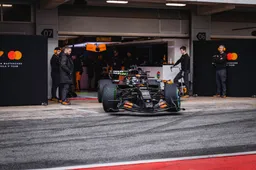
F1 LIVE | Barcelona Pre-Season Test - Day 4

Russell and Mercedes dominate afternoon testing and set impressive benchmark

'Quartararo leaves Yamaha to sign two-year deal with rival manufacturer'

